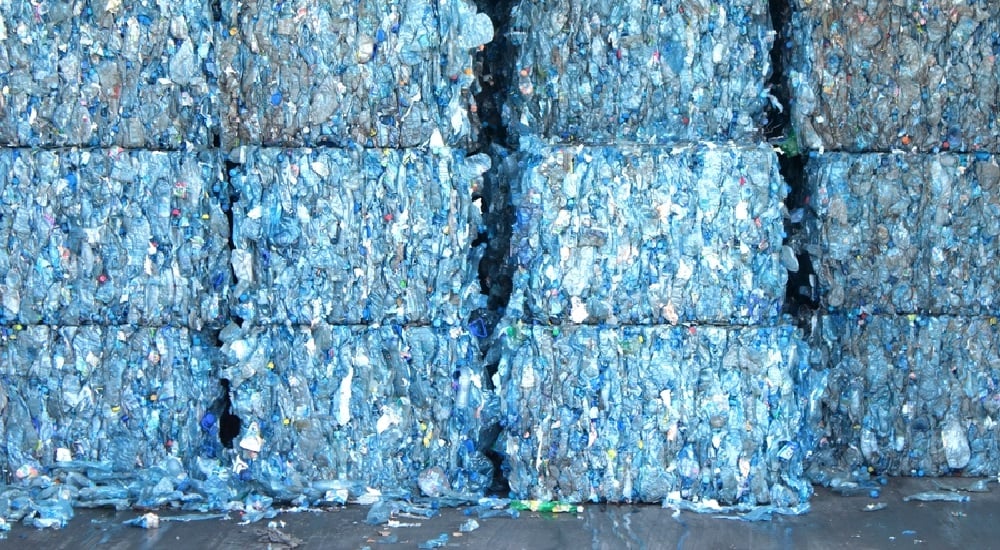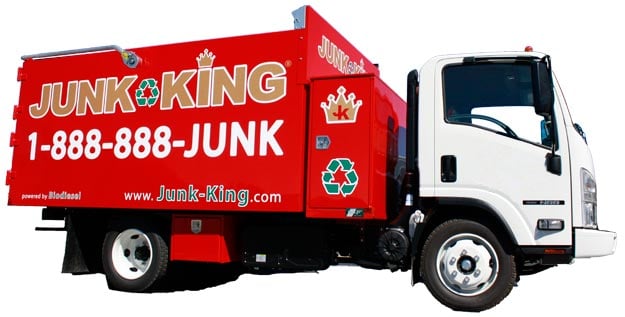
Plastic recycling is a problem. This may sound odd since putting waste plastic in recycling bins is simple. But recycling plastic is far from simple.
The plastic recycling side of the recycling industry has always had challenges and complications. But since China banned waste plastic imports in 2018, the challenges have escalated.
Until 2018 the United States managed to offload and export the bulk of it's waste plastics. This meant that our recycling rate of waste plastic actually generated was around 10 percent. That is not an impressive number considering many European nations manage to recycle 35 to 40 percent of theirs. However, to be fair, the disparity in volume is tremendous.
Today, we have to find ways to dispose of far more of our own waste plastic than we did two years ago since we cannot simply ship most of it off to China.
Plastic, Processes and Profits
The problem with the industry today stems from the relative high cost of recycling most plastics compared to creating virgin, or new, plastic raw materials. If recyclers cannot make a profit from waste plastic there is little incentive to do so.
Supply and demand play a significant factor, as well. While there still some demand for recycled plastic material, the volume is not enough to overcome the inertia of meeting the demand for more plastic products. Add to this mix the fact that most plastics used by manufacturers is not easily recyclable - or isn't recyclable at all.
Now the industry must face an additional blow: the bottoming out of crude oil prices.
According to PlasticExpert.co.uk,
"There is a direct relationship between the cost of oil and the price of producing and recycling plastic. Plastic is made from several components, one of which is oil. This means that when the cost of a barrel of oil falls, the price of making plastic also decreases."
And a recent story in Eco-Business.com noted,
"The price of plastic is closely linked to the price of oil, and since the price of plastic has fallen in line with the oil price, the price of recycled plastic is now much higher than virgin plastic, squeezing demand for post-consumer polymers.
Recycled plastic became more expensive than virgin plastic towards the end of last year, driven by growing demand from consumer goods companies to use recycled plastics in their products. But now it makes even more economic sense for manufacturers to use new plastic instead of recycled plastic."
Ever wondered what the state of plastic recycling is like today? Here's a graphic snapshot:

Share this Image On Your Site
Crisis In the Realm of Plastic Recycling
Part of the problem is the sheer volume of plastic being produced. We continue to manufacture and package more goods every year and a vast majority of both good and packaging contain plastics. Add to that the ever-growing mountains of waste plastic that does not decompose, break down or rot - at least not for a number of decades anyway.
We are practically drowning in plastic and with no viable or cost-effective solution in sight.
An article in The Atlantic bemoans this situation,
"This end of recycling comes at a time when the United States is creating more waste than ever. In 2015, the most recent year for which national data are available, America generated 262.4 million tons of waste, up 4.5 percent from 2010 and 60 percent from 1985. That amounts to nearly five pounds per person a day. New York City collected 934 tons of metal, plastic, and glass a day from residents last year, a 33 percent increase from 2013."
While it isn't really the "end of recycling" it is a crisis situation that is having devastating effects both environmentally and economically, both here and abroad.
The good news is that, at least on an individual and family level, we can help by actively reducing our own consumption of plastic goods. There are a number of resources available to guide you through best practices when it comes to "plastic consumption reduction."
Your Personal Garbage Removal Experts
Junk King hauls just about every kind of item except for hazardous waste, so you can call us for garbage removal for large trash items such as broken furniture, old washing machines, or even renovation debris. .
We also put emphasis on eco-friendly junk removal services. This means that recyclable materials from paper trash to metal to electronics and plastic will be safely and responsibly disposed of at recycling facilities. We also work with local organizations to donate usable items like clothes and furniture.
Whether you're cleaning your home after many years of accumulating junk, or getting ready for an office move, we can provide you with the resources you need to do the job. With our competent and well-trained team, you can be assured that every item that can and should be recycled is taken care of in a fully eco-friendly manner.
Our knowledgeable and friendly crew can do the heavy lifting for you, or you can choose from our fleet of MINI Dumpsters if you prefer to do that part yourself.
Either way, our professional and insured trash and junk removal team will call 15 minutes before we show up at your shop or office and we’ll give you a free estimate based on how much room your items take up in our truck or our MINI Dumpster. And with no hidden fees.
Ready to get rid of that junk? It’s as simple as 1, 2, 3.
You can make an appointment by booking online above or by calling 1.888.888.JUNK (5865).




